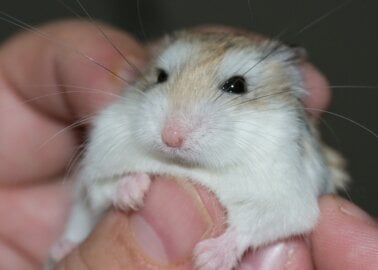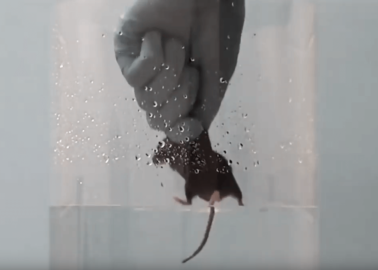When Will the University of Edinburgh Stop Using the Forced Swim Test?
The University of Edinburgh continues to use mice and rats in the notorious forced swim test. Will you join PETA in asking it to stop these cruel and useless experiments?

What Are Experimenters in Edinburgh Doing to Rats and Mice?
University experimenters place rats and mice in-sided containers filled with water and watch them paddle furiously in search of an exit as they try to keep their heads above water. Intermittently, they float. Some experimenters claim that this test can be used to screen drugs for antidepressant properties, but this simply is not true.

Forced Swim Experiments Are Bad Science
Using forced swim experiments in an attempt to study human neurobehavioural conditions is not only appallingly cruel but also pointless. The wider scientific community condemns the test, and many companies have already banned its use.
These experiments do nothing more than waste animals’ lives and delay the development of new effective treatments, which are desperately needed.

Organisations Are Saying Goodbye to Forced Swim Experiments
After PETA provided King’s College London with scientific evidence showing the failings of the forced swim test, the university confirmed it does not intend to conduct the test on any species going forward. In September 2020, the University of Adelaide announced that it would no longer subject animals to the test. Additionally, 14 companies – including GlaxoSmithKline, AstraZeneca, Pfizer, Johnson & Johnson, Roche, Bristol Myers Squibb, Bayer, Novo Nordisk, AbbVie, Boehringer Ingelheim, and Sage Therapeutics – have banned the test after hearing from PETA or its affiliates.
It’s time the University of Edinburgh followed suit and invested in humane, human-relevant, non-animal methods.
What You Can Do for Mice and Rats
Join PETA in calling on the University of Edinburgh to ban the near-drowning of animals:



